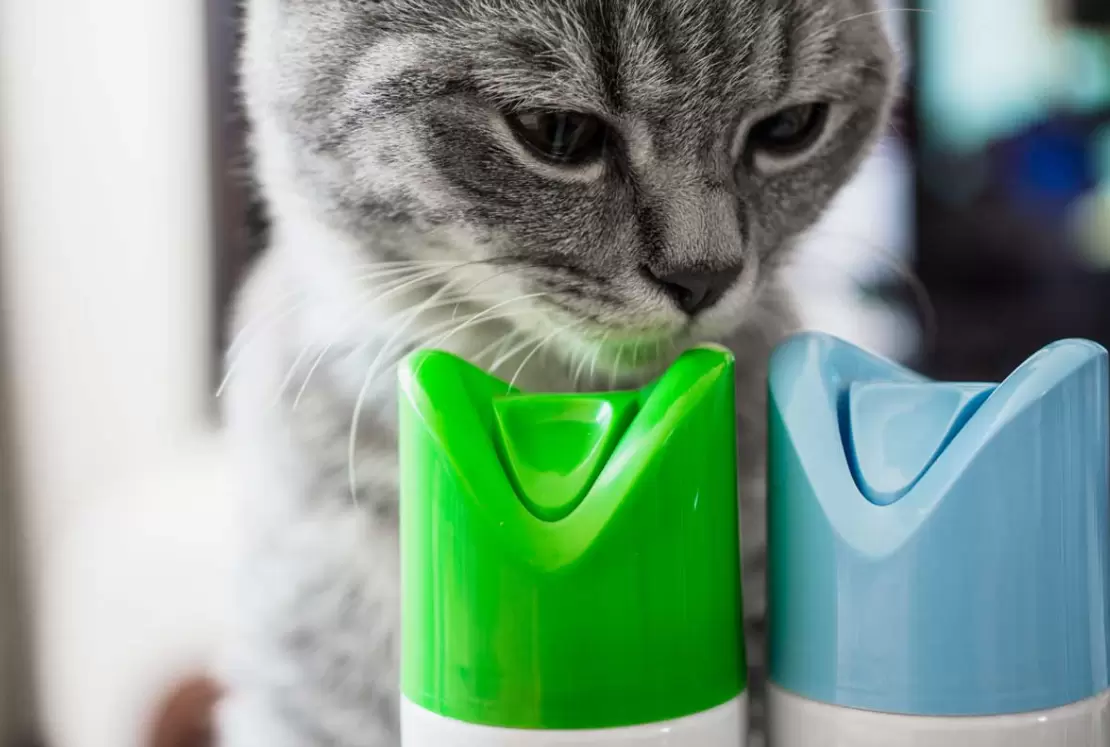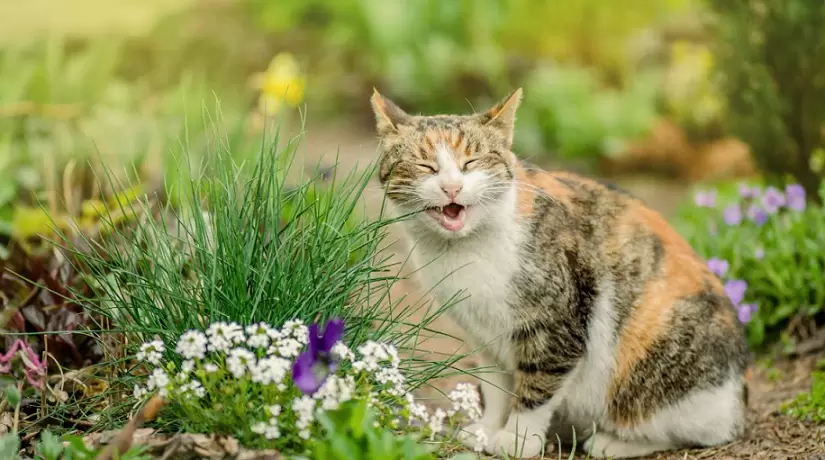As cat owners, we might be mendacious if we said we hadn’t given our tom cat pal a curious sniff or two. And whilst Fido’s fragrance can vary from day to day, our cats smell continually have a smooth, excellent natural aroma.
But there’s more science behind that great feline smell than you might expect. Let’s explore the real causes behind your cat’s fresh fragrance.
Their Fastidious Grooming Routine Keeps Dander and Odor at Bay:
We’ve all watched our cats spend what looks like hours meticulously licking, nibbling, and grooming themselves top to backside. This isn’t always simply idle play, it’s a crucial part of their hygiene.
Scientific research has shown that cats spend 30-50% of their waking hours engaged in self cleaning behaviors. All this grooming serves an important purpose to keep their coat and skin in flawless condition.
Cats have a covering of natural oils on their fur that can accumulate dirt and break down into smelly compounds if left unattended.
Their thorough licking cleans these oils away, along with potential dander, debris, and microbes before they get a chance to manifest as an unpleasant scent.
Not only that, but feline saliva contains antibacterial properties that help sanitize the coat as they coat it with a fresh layer of their own bacteria. This daily “deep clean” ritual is a major reason why cats smell constantly smell cleaner than their canine counterparts who can’t reach every spot.
Those Pleasant Pheromones for Cats Smell are Nature’s Air Freshener:

Science has discovered that a cat’s saliva contains pheromones that trigger feelings of relaxation and safety in other felines. To us humans, these chemicals diffuse into the air as a slight, soothing musk.
Think of how fabric softener leaves your clothes with a lighter, fresher scent . Cats are essentially “softening” themselves on a daily basis through their saliva. No wonder other cats smell are often compelled to sniff and nuzzle each other; it’s like giving a friendly hug with their sense of smell.
But these social pheromones diffuse into the air in our homes, leaving a pleasant ambiance unlike the chemically scented sprays. No wonder many people describe their favorite part of owning a cat is their calming, mild aroma.
Specialized Scent Glands Sustain Cats Smell a Sophisticated Equilibrium:
Cats smell possess several types of scent glands, the most notable located on their paws, cheeks, and perineal area. Studies show these glands secrete waxy oils containing unique substances like fatty acids, steroids and proteins.
Similar to how pheromones from different glands allow ants and bees to recognize each other, a cat’s blended scent signature aids in social communication. Some scientists believe the volatile compounds released also act to confuse predators by obscuring an individual cat’s scent trail.

Regardless of their evolved purpose, to our sensitive human noses, the blended result of these specialized natural perfumes adds up to a lovely, mild fragrance.
Table 1: Common Scent Glands in domestic cats smell
| Gland Location | Purpose |
| Interdigital glands | Between toes; may identify sex of cat |
| Cheek glands | Under chin; likely mark territory |
| Anal glands | Beside anal opening; possibly used during courtship |
| Perianal glands | Circular pads around anus; social communication |
Enhance Your Cat’s Alluring Aroma Naturally:
Now that we know our feline friends are kind of like walking Glade plugins, you may wonder if there’s a way to boost their already pleasant perfume. A few techniques can help keep kitty’s fabulous fragrance flowing:
- Gentle cleansing. Over bathing can disrupt natural oils and pheromones produced by their salivary and scent glands. Stick to occasional facial/paw washes with a fragrance free formula that preserves their self anointing chemistry.
- Feline attractants. Some cats enjoy the calming effect of synthetic pheromone sprays or diffusers modeled after their own stress relieving chemistry. Check with your vet for reputable options.
- Fastidious litter habits. Promptly scooping waste from the litter box helps prevent odors from spreading throughout the home through particles that cling to fur.

- Nutritious nourishment. A balanced homemade or raw diet supports the health of skin and coat so they stay naturally shiny and smelling oh so sweet.
Frequently Asked Questions (FAQs):
Q: Why do I love the smell of my cat?
A: Because you love them.
Q: Why am I addicted to smelling my cat?
A: It’s an Instinctive Reaction to Healthy Animals.
Q: Why do indoor cats smell good?
A: Their grooming habits, diet, and natural scent.
Q: Is owning a cat smelly?
A: Cats don’t smell as much as other animals.
Q: Can cats smell your fear?
A: Cats can discriminate olfactory cues related to human fear.
Conclusion:
Well there you have it folks, the fascinating final secrets behind your cat’s forever fresh fragrance! Who knew such sophisticated biochemical processes and specialized evolution could allow our feline friends’ natural perfume to consistently delight our senses.
I hope unpacking the science has given you an even deeper appreciation for the aromatic artistry these furry wonders finesse everyday through dedicated cleansing rituals.
So next time your precious pet presses their fuzzy face in for a nuzzle, be sure to plant a kiss of thanks for all their intrinsically intoxicating efforts. Their signature scent will always have a special place in our hearts!

Edward Charlie has been a dedicated blog writer since 2008, amassing 16 years of experience in the field. Throughout his career, he has developed a keen ability to craft engaging, well-researched content that resonates with a diverse audience. Edward’s extensive background has allowed him to master various blogging niches, from technology and lifestyle to science and culture. His commitment to quality writing and insightful analysis has not only refined his skills but also earned him a reputation as a trusted voice in the blogging community. Passionate about his craft, Edward continues to explore new topics and trends, delivering content that informs and captivates his readers.